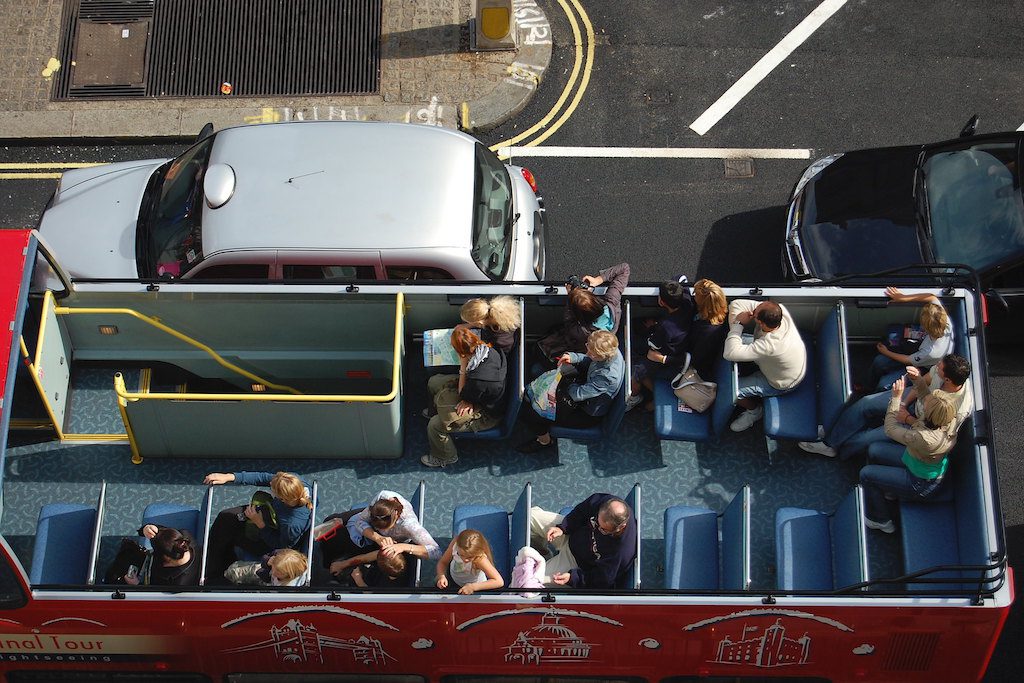Skift Take
What will happen with Brexit is still anyone's guess. But the end of the "freedom of movement" — which is the most likely outcome in the event of any Brexit deal or no deal — will present existential hiring challenges for the tourism sector's labor force.
Virtually nothing about Brexit is certain. However, one thing that looks likely is this: Should it go forward, with a deal or no deal, the freedom of movement that has allowed Europeans to work in the United Kingdom, and vice versa, will end.
The immigration plan that the UK government has proposed to replace that freedom of movement has prominently featured the ideas of both a minimum salary threshold of £30,000 ($36,672) as well as a skills-based merit system for European nationals who want to come to the UK to work post-Brexit. That puts the tourism industry in an undeniable bind: It over-relies on EU labor compared to other industries, and has an average salary of £23,000 ($28,128) per year, far below the proposed threshold.
A new report from the Canterbury Christ University and UKinbound, a trade association, characterized this possible future as a “perfect storm.” It highlights the effect that the proposed post-Brexit labor market will have on tourism employers. According to survey respondents — 190 companies which together employ 20,000 employees across the sector — 68 percent of tourism businesses said the limited pool of available labor in the UK is the main reason they need to hire EU workers, while 75 percent said the proposals will have a negative impact on their ability to remain competitive. Additionally, 65 percent said the proposals would impinge on their ability to continue operating.
When it comes to the industry’s reliance on EU labor, the Office of National Statistics says that 10 percent of the tourism sector workforce is made up of EU nationals. However, the report contends that number belies the scale of dependence. Nearly a third of survey respondents said they rely on European nationals for more than half of their labor force. In London, over half of tourism and hospitality businesses have that same level of reliance. Meanwhile, models suggests that 100,000 European employees working in the UK travel sector earn less than the £30,000 salary threshold.
The report also noted that the idea that lower skilled work is easier to hire for than higher skilled work — an idea that underpins the government’s proposal to only allow high-skilled workers in, presumably to leave lower-skilled jobs for UK citizens — is unsuited to the industry. It noted that “lower paid skills gaps and shortages are as hard to fill as higher paid ones – in fact, they are harder to fill because they rely on structural solutions beyond the scope of employers to address.”
It’s true that the tourism industry is just one of the many sectors that will be affected by these immigration changes. But it’s also true that tourism’s impact on the economy is often not adequately noted by politicians: As one of the top 10 tourism markets in the world, the UK tourism industry employs 3.2 million people and contributes 7.2 percent of the nation’s GDP, according to the report. By comparison, manufacturing — which has gotten hundreds of Brexit-related headlines — employs roughly 2.9 million.
One tour operator summed it up as such: “Because the tourist industry is so resilient to everything, we always bounce back. The UK’s such a fantastic product, but there’s a danger that they forget we do need help… I think we’re going to get overlooked, and that’s the huge worry.”
The report’s findings will be reported to the UK’s Migration Advisory Committee, which has called for evidence on the salary threshold and points-based system. The committee is due to report to the Home Office with updated recommendations and policies by January 2020.
It’s anyone’s guess if Brexit will have actually occurred by that date.
The Daily Newsletter
Our daily coverage of the global travel industry. Written by editors and analysts from across Skift’s brands.
Have a confidential tip for Skift? Get in touch
Tags: brexit, eu, european union, uk
Photo credit: Tourists on a sightseeing bus. Andrew / Flickr
